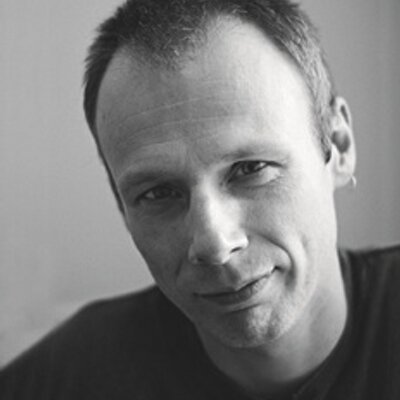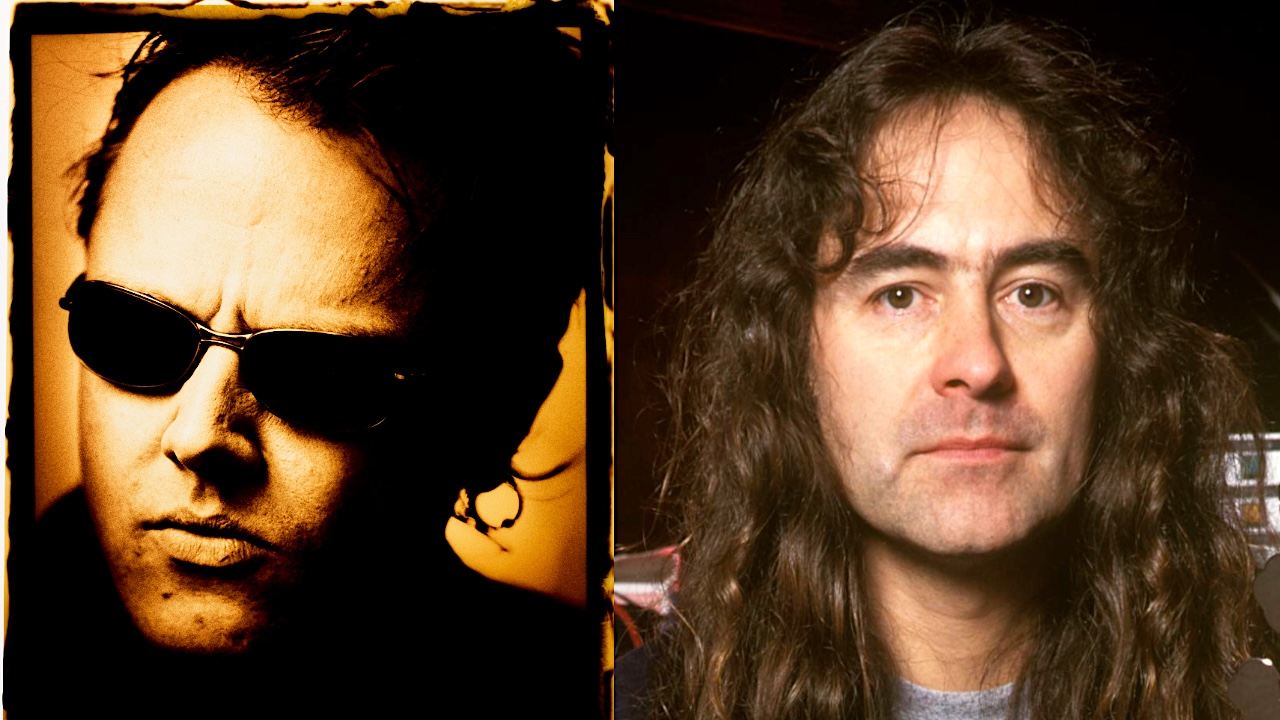“There’s a reason the music business is considered a slimy hellhole. Be careful who you trust...” The Black Keys are back and they're bruised
Last year, they cancelled a tour, their album flopped and they fired their managers. Can the Black Keys come back?
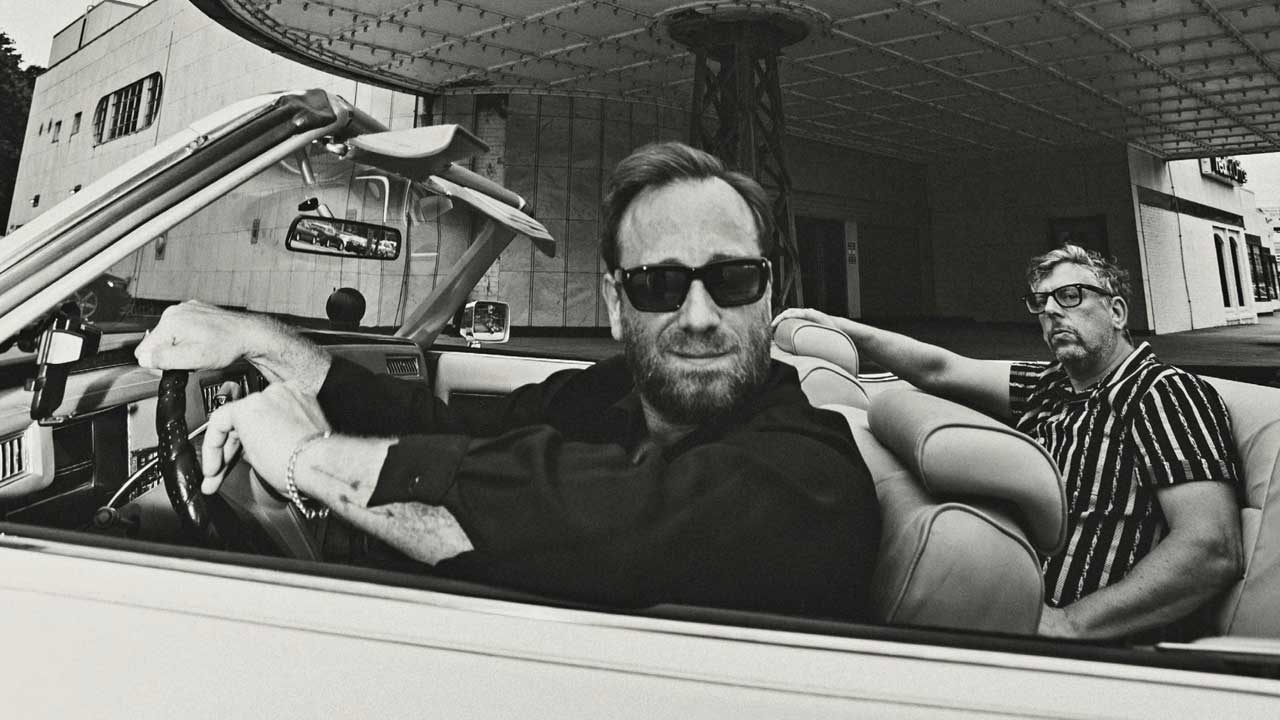
Dan Auerbach and Patrick Carney, collectively The Black Keys, couldn’t telegraph their present state of mind any clearer than they do on the opening, and title, track of their forthcoming thirteenth album together. Chiming keyboards usher in a ringing guitar melody, a gambolling rhythm on its heels. The first words out Auberach’s mouth on the record are: ‘Let it go… You’ve got to let it all go’. If that wasn’t specific enough, there’s the title itself: No Rain, No Flowers.
After their well-documented annus-horribilis of 2024, which included an aborted US arena tour, a stillborn album, Ohio Players, and then their wholesale firing of their managers (industry heavyweights Irving Azoff and Steve Moir) and publicist, it casts the pair as somewhat more world-weary but nonetheless defiant after the storm. All the more emphatic for the backdrop being an irresistible three-minute pop-rock confection.
In total, No Rain, No Flowers conveys as an act of bloodied but unbowed will. As with each Keys album from 2011’s major breakthrough El Camino, it was made at Auerbach’s Easy Easy Studio in Nashville, their adopted home town since 2010. It was started last July, just two months on from the tour debacle, and its 11 box-fresh songs came together on the spot, in the room.
As has also become typical practice for them, Auerbach and Carney bounced off collaborators. In this case a trio of songwriter-producers, Daniel Tashian, Scott Storch and Rick Nowells, respectively well-known for their work with Kacey Musgraves, Dr Dre and Beyoncé, and on Lana Del Rey’s Ultraviolence album of 2014, a record co-produced by Auerbach. The overall mood of their labours is best described by Auerbach as “sad pop”, which is to say wistful lyrics matched with pointedly upbeat music. Or put another way, what’s become standard issue from The Black Keys.
“No matter who we let into our world, essentially what happens is those people go through our filter,” says Auerbach. “What comes out the other side is always us, no matter what. Ultimately, we went through a traumatic experience last year. We were definitely tested, stretched to our limits. What brought us back together is the same thing as always, which is getting to play music with each other. It was a reminder to trust our guts.”
“There’s a reason the music business is considered a slimy hellhole,” Carney, the spikier of the two, avers. “Be careful who you trust. I wish the work was just making the songs and playing the shows, but it’s also worrying about who you’re working with, and every venue you’re playing, and ticket prices… And it all comes down to the band. No one is going to be as passionate about it as the two guys in the band, but you have to maintain a level of hyper-vigilance, or else it’s gonna get fucked up.”

Today Auerbach and Carney are in Boise, Idaho, tonight being the fifth date of a North American tour warming up to the album’s August release. The venues they’re playing are outdoor amphitheatres and theatres, scaled down and a better fit for their music. The two men are a study in contrasts. Carney sits himself outdoors, his Zoom camera on, his white ‘Playboy’ sweatshirt vivid against a milk-blue sky.
Sign up below to get the latest from Classic Rock, plus exclusive special offers, direct to your inbox!
Auerbach’s camera remains off, though by the sounds of things he’s holed up in a hotel room. One suspects he’d be tricky to read in any circumstance, such is his straight-bat reserve, and the general measure of his words. Carney is more all out, animated and talkative, his otherwise laconic drawl punctuated by occasional exclamations of ire, one hand spiralling a cigarette around his head for added effect.
Drummer Carney describes singer/guitarist Auerbach as “confident in his vision. He doesn’t give up, and he’s always had that mentality”. Carney, says Auerbach, is a natural born leader, “and when he decides to take control and steers the ship, everything seems to go well. When it comes to business, I trust Pat to look at it from every angle, and especially the one I didn’t think about”.
They grew up two doors apart in Akron, Ohio, a blue-collar town, population under 200,000 and best known for being the tyre capital of America. There wasn’t so much as a rock club in town when Auerbach, captain of the Firestone High soccer team, and Carney, the school’s resident outcast, first started playing music together in 1996. Both of them went on to, and dropped out of, the University of Akron, and formed The Black Keys as a duo in 2001.
A musical line ran through each of their families. Auerbach’s cousin, Robert Quine, played art-rock guitar for Lou Reed and John Zorn. Carney’s uncle, Ralph Carney, blew sax on a bunch of Tom Waits records. A six-song demo, raw, bluesy and not so original, landed them a deal with a tiny indie label, Alive, for whom they made their 2002 debut album, The Big Come, on an eight-track machine in Carney’s basement.
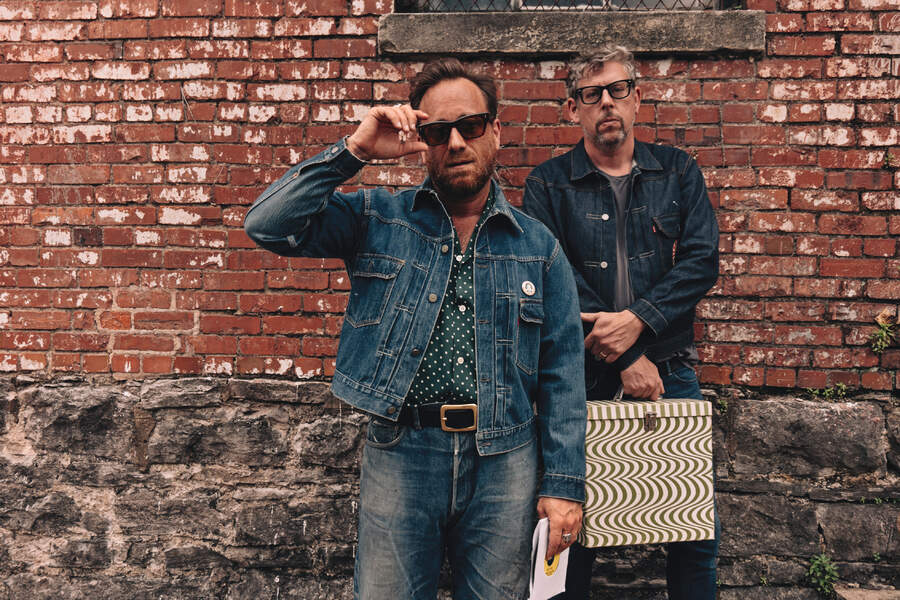
By their own telling, their early musical template was “weird Americana songs and spooky ballads”, interspersed with the odd Captain Beefheart cover. They took jobs mowing lawns to fund their first tour, and graduated to a bigger indie, Fat Possum, for 2003’s Thickfreakness, made over a single 14-hour session back in Carney’s basement.
“It was hard, but exciting too,” Carney says of this formative period. “Because at least back then there were still markers, even very small ones, that would indicate to you that someone was paying attention. Whether it was a small review in a magazine, or you’d walk into a record store and the clerk’s playing your song. A lot of these things that don’t really happen any more.”
They made gradual progress, but maintained an upward curve. In 2004 they played at Coachella and Bonnaroo and signed to a major label, Nonesuch. Yet 2006’s Magic Potion was another basement job. In parallel with them but going faster was another blues-rock duo out of Detroit, the White Stripes. The Stripes had a definite schtick – their red/white uniform – and with Jack and Meg White’s ‘were they weren’t they siblings’ act, an air of self-styled mystery. The Keys were T-shirts and jeans, the jock and the geek. Rock critics salivated over the Stripes, and gave the Keys shit for licensing their songs to advertisers.
“There are a lot of false prophets in this business,” says Auerbach. “People who want to give you advice, and really they have no experience or any fucking idea what they’re talking about. There was this whole indie-rock credibility thing that was rampant in the music industry at the time.”
“The single worst piece of advice we ever got as a band was basically: don’t allow a song into a commercial,” says Carney. “It put this whole thing in our heads of worrying about what other people were going to say, rather than paying attention to the fact our music isn’t on the radio, and this was a way for people to hear our shit. And we could also maybe pay some fucking bills.”
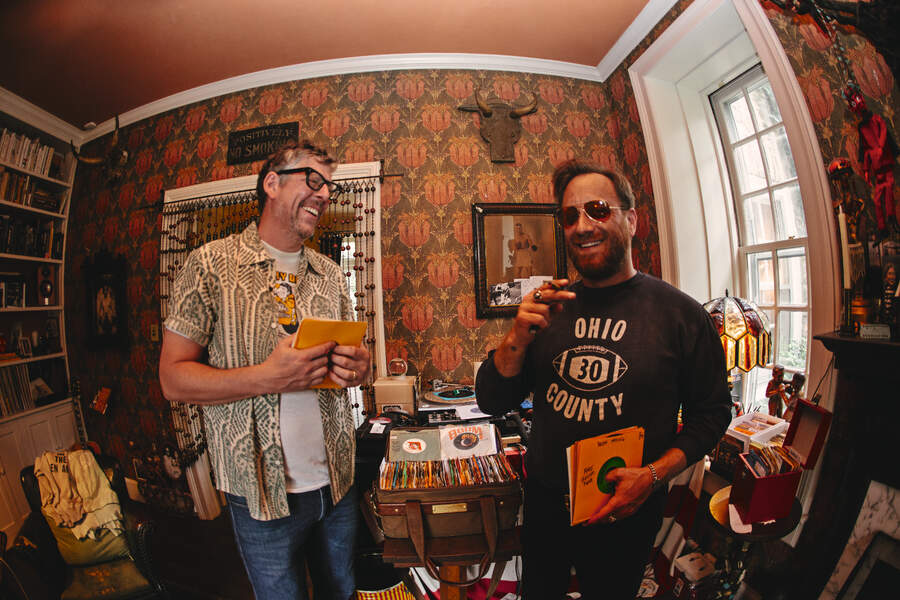
The Keys’ gear change began as a planned comeback album for Ike Turner. Auerbach and Carney were tapped up to play on it by its appointed producer, Danger Mouse, né Brian Burton. Burton had just then hit big himself as half, and mastermind, of pop-soul duo Gnarls Barkley, who had a ubiquitous worldwide No.1 with their first single, Crazy. Turner’s record never took off, but Auerbach and Carney convinced Burton to make one with them instead.
Attack & Release, No.14 on the Billboard Hot 200 and an all-round sharpening of the Keys’ teeth, blazed out in 2008. In its aftermath, Carney went through a bitter divorce from his college sweetheart, Denise Grollmus, while Auerbach made a well-received solo record, Keep It Hid.
The Keys rolled on with Danger Mouse. In 2010 the three of them made the even more tightly honed Brothers, recorded at the storied Muscle Shoals studio in rural Alabama and peaking with their most urgent song to that point, Howlin’ For You, a nagging, three-minute blues-rock tour de force. The album sold well over a million copies and made their name. The year-long tour they undertook on the back of it almost broke them.
“Danger Mouse really helped with arrangement stuff, and it was inspiring, and all these opportunities started coming our way, but it was also a very stressful, tense time,” says Carney. “We were supposed to go play the Big Day Out in Australia in January 2011. Our managers told us: ‘You’re going to have to put on a bigger production, and you’ll be down there three weeks, and you won’t make any money.’ We were like: ‘Well fuck that’.
“We were fried. Dan and I decided to pay Big Day Out $180,000 to not go. Then we called Danger Mouse and asked him if he wanted to come to Nashville and make another record with us at Dan’s new studio.”
El Camino, which took shape over the spring of 2011, remains the definitive Black Keys statement. Eleven songs, 38 minutes running time, no fat, and a pair of pulsating aces for its signature tracks Lonely Boy and Gold On The Ceiling. Auerbach says they approached it “knowing we needed to play bigger places. The demand was there”.
“Danger Mouse said: ‘You’re going to need a couple of arena-sized songs – they’re going to have to be a little faster,’” Carney continues. “I realised we’d never actually written a fast song. I had to learn how to play the drums differently, but it was fun. “When we’d finished the record, I loved it, but I wasn’t sure about it. That June we played Bonnaroo again, and The Strokes played, and some of those guys came over to my house that Sunday. We were hanging out, and I played Fab (Moretti) and Albert (Hammond Jr) the album we’d just had mastered. They were both like: ‘Holy shit!’ That was the first time I thought we might have an actual hit on our next record.”
El Camino rocketed, peaking at No.2 on the Billboard chart. The Keys set off on their first US arena tour, having sold out their prestigious New York date at Madison Square Garden in 15 minutes flat. The ensuing emotional fallout was once more bruising. Auerbach went through a divorce of his own (both he and Carney would remarry and divorce again; Carney is now on his third marriage to fellow musician Michelle Branch).
Their next record, 2014’s True Blue, was their first US No.1, but it was more awkward and without the staying power of its predecessor. It was also their last to date with Danger Mouse. After yet another mammoth tour, The Black Keys principals retreated to Nashville to tend their wounds.
“When you get to the point where it’s more exciting to have a day off than be playing Madison Square Garden, that’s when you know you’re working too much,” says Carney. “You know, do you really want to be on the road nine months a year when you could be at home, making records for other people, and sleeping in your own bed? So we put the brakes on shit for a couple of years.”
“We never had to be taught how to work hard,” Auerbach reasons. “We had to be taught how to take a rest.”
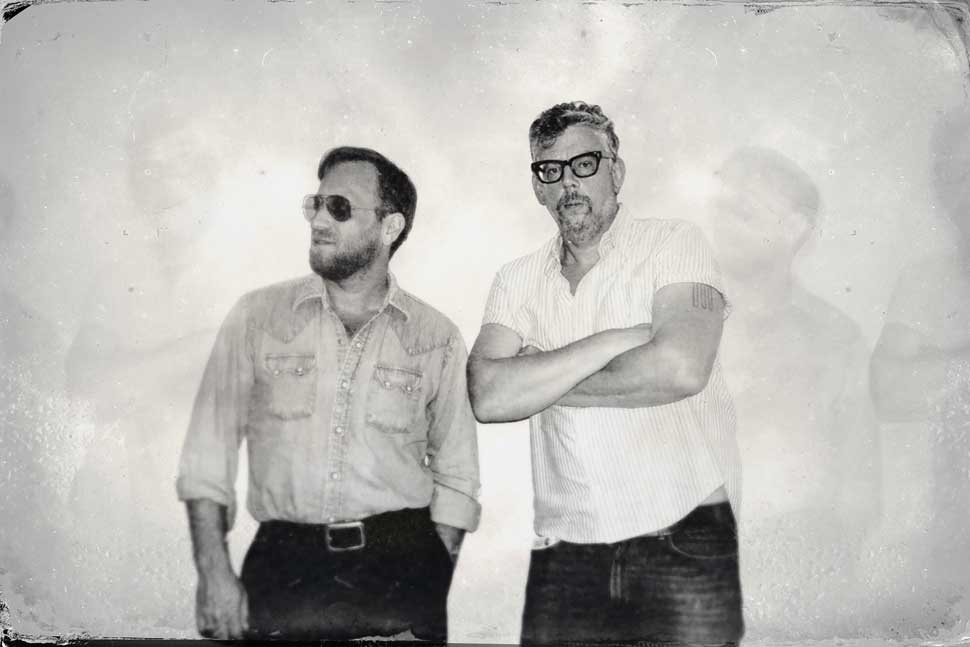
In the event their hiatus stretched to four years. Auerbach formed a side band, The Arcs, and made a record with them, Yours, Dreamily, and a second blues-based solo album, Waiting On A Song, in 2017. Carney kept busy producing Branch and also Karen Elson, Jack White’s ex-wife. When they did get back together it was into a markedly different world, characterised by streaming, clickbait, Tik Tok and short attention spans, one nothing like so receptive to the rarefied class of veteran rock bands the Keys now occupy.
Furthering their sense of old-school-ness, the Keys have gone on and made five albums in six years, up to and including No Rain, No Flowers. 2019’s Let’s Rock was self-produced and effortless-sounding. After it came Delta Kream, a solid collection of trad-blues covers, and 2022’s so-so Dropout Boogie.
Then the intermittently excellent but ill-fated Ohio Players. Their sales have, unsurprisingly, slowed, but they’ve found kinship with other artists operating out of Nashville, the likes of Chris Stapleton and Jason Isbell, “rooted in the same type of thing and one hundred per cent coming from the same place as us”, as Auerbach puts it.
“There’s a lot of careers you could look at as a cool way to get to 50-plus and still be doing rock’n’roll and making something interesting,” says Carney. “I mean, a band like Radiohead is a good one to consider. We navigated this shit from Akron. To go from there to figuring out how to headline Lollapalooza…
“I guess it’s also the reason there’s been five albums in six years. If you want to go sell concert tickets, and for someone to be a fan of what you’re doing, then do shit. Make shit. Our biggest fear is being an unproductive band.”
One of the positive by-products of last year’s upheavals has been the mushrooming of the Keys’ Record Hang events. All-vinyl dance parties, at which Auerbach, Carney and friends DJ, these are going ahead at selected stops on the current tour. The process of researching and compiling their Hang playlists did, they say, very much feed into and influence the ‘don’t bore us, get to the chorus’ approach to the new record.
“Going back and playing stuff from the sixties and through the mid-seventies, there’s an art of economy with whatever’s happening in the arrangement,” says Carney. “Not a lot of wasted space. That’s definitely worn off on us. It’s fun, too, because now as we’re playing these new songs of ours live we’re like: ‘Shit, it’s only two minutes long. There’s room for a solo!’”
Besides a palpable quiet satisfaction with the new album, neither Auerbach nor Carney express too much, if any, concern with how it will fare once it goes out into the wider world. Beaten up they may have been, but both seem reconciled to their going back to being outsiders and interlopers.
Carney claims not to listen to Top 40 radio these days. “I know what Dua Lipa looks like on stage, and that’s as far as I get to understanding the mainstream,” he says. Auerbach offers that the two of them have made a career out of “following our own interests and dedicated our lives to serving our audience. We’re on tour. We’re playing sold-out shows in amazing places like Red Rocks. Our band feels tighter than ever, and the creative juices are flowing non-stop.”
Showtime in Boise is looming. Ask them, in conclusion, what’s been the biggest lesson they’ve absorbed on their meandering journey together, and both men pause. Then Carney at last pipes up: “To this day, twenty-four years in, we’re getting people offering advice like you guys should do this, and that, and it’s going to take a couple of months of your lives, and it’s not going to make you money, but it’ll be so fucking cool. Everyone else, the manager, the agent, the venue, the crew, they’ll get paid, but for Dan and me… Whereas the advice we both could have used would be: ‘Break up with your college girlfriend.’”
“That and ‘take the money for the mayonnaise commercial… and spend it on a new girlfriend,’” Auerbach interjects. “That’s advice I’d take.”
No Rain, No Flowers is out now via Parlophone.
Paul Rees been a professional writer and journalist for more than 20 years. He was Editor-in-Chief of the music magazines Q and Kerrang! for a total of 13 years and during that period interviewed everyone from Sir Paul McCartney, Madonna and Bruce Springsteen to Noel Gallagher, Adele and Take That. His work has also been published in the Sunday Times, the Telegraph, the Independent, the Evening Standard, the Sunday Express, Classic Rock, Outdoor Fitness, When Saturday Comes and a range of international periodicals.
You must confirm your public display name before commenting
Please logout and then login again, you will then be prompted to enter your display name.


